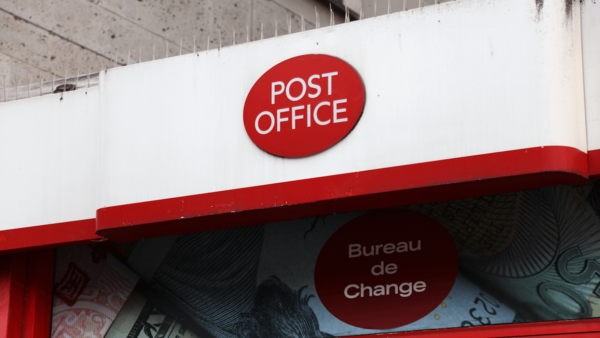Why Understanding Late Filing Penalties Matters

Timing is crucial when it comes to filing taxes. Missing the deadline not only leads to late filing penalties but can also pave the way for additional interest charges. Understanding these penalties is essential to avoid unforeseen costs and unnecessary stress. Let's unpack what constitutes a late filing penalty and how getting this right can save you a substantial amount of money.
A late filing penalty is imposed by HMRC when you fail to submit your tax return by the deadline, which is 31 January following the end of the tax year. The penalty varies depending on how late the return is, and it can escalate quickly. By understanding the intricacies of these penalties, you can take the necessary steps to avoid them and ensure you're only paying what you owe.
The Initial Penalty Charge
If you miss the 31 January filing deadline, an automatic initial penalty of £100 will be charged. This penalty applies regardless of whether there is any tax to pay or if the tax due has already been paid on time.
Even if your tax return shows no tax liability, or you've settled your tax bill before the deadline, the late filing penalty still stands. It's crucial to meet this deadline to avoid unnecessary charges.


Penalties for Continued Delays
If your return is three months late, you’ll incur additional daily penalties of £10 per day, up to a maximum of £900. This adds a substantial extra cost on top of the initial £100 charge.
These daily penalties can quickly accumulate, making it crucial to file your return as soon as possible to avoid these escalating fees and additional financial burdens. Ensuring timely submission helps you avoid significant and unnecessary penalties.

When the return is six months late, you’re charged either a further £300 or 5% of the tax due, whichever is greater. This can mean paying a substantial amount more than initially owing.Additional Six-Month Penalties

For returns that are 12 months late, you face even steeper penalties. The charge is either £300 or 5% of the tax due, or even more in severe cases, including possible additional fines for deliberate non-disclosure or concealment of information.Twelve-Month Delays

How to Avoid Late Filing Penalties
Avoiding late filing penalties begins with timely preparation. The Pie Tax App is an invaluable tool in managing your tax deadlines. It helps with organising your documentation and provides alerts as deadlines approach. Additionally, the expert tax assistants available on the Pie app can guide you through the filing process to ensure no steps are missed.
Preparation is key to avoiding these costly penalties. By planning ahead, leveraging the resources provided by the Pie Tax App, and consulting expert tax assistants, you can submit your tax return well before the deadline. This helps mitigate any unforeseen delays, such as system outages or documentation issues, which can lead to missed deadlines.
The Role of Professional Help
Engaging professionals, such as those available through the Pie Tax App, can make a significant difference. Their expertise can ensure your return is accurately completed and submitted on time, reducing the risk of penalties. Moreover, they can help identify possible deductions and credits you may be eligible for, potentially lowering your overall tax liability.
Professional assistance ensures thoroughness and accuracy, which are critical in preventing late filing. Experts have a nuanced understanding of tax regulations and changes, allowing them to navigate complexities efficiently. This proactive approach to tax submission not only avoids penalties but can also uncover financial opportunities specific to your situation.

Tips for Timely Tax Filing

Begin gathering your information as soon as possible, ideally right after the end of the tax year.Start Early

Use the Pie Tax App to set notifications for key dates.Set Reminders

Don’t hesitate to consult expert tax assistants available on the Pie app for complex situations.Seek Help

Fun Fact about Taxes
Did you know that the UK tax code is over 10,000 pages long? Navigating it without expert help can be daunting, making professional tools like the Pie Tax App indispensable for timely filing.
Handling Missed Deadlines

If you’ve missed your tax return deadline, the first step is not to panic. Immediate action is required to minimise penalties. Use the Pie Tax App to quickly gather and organise your tax documents, ensuring the return is filed as promptly as possible.
In the event of a missed deadline, filing as soon as you realise the oversight can drastically reduce additional accumulative charges. Additionally, contacting HMRC to explain your situation might help mitigate further penalties, especially if the delay was due to circumstances beyond your control.

Once you’ve missed a deadline, it’s essential to understand the escalation process for penalties. Knowledge of how penalties increase over time can provide the necessary urgency to address the issue immediately.Tax Escalation Process

If you believe you have a reasonable excuse for the delay, you have the right to appeal the penalty. This appeal must be made within 30 days of receiving the penalty notice.Appeal Your Penalty
Summary
Late filing penalties can quickly become a financial burden if not managed properly. Starting early, setting reminders using the Pie Tax App, and consulting with expert tax assistants are effective strategies to avoid these penalties. By understanding the specifics of late filing penalties and taking proactive steps, you can avoid unnecessary costs and save money.
The Pie Tax App provides significant advantages, including deadline alerts, document organisation, and expert assistance, making tax filing more efficient and less stressful. Take control of your tax filing process today to avoid costly penalties in the future.
Remember, staying informed and prepared is the key to a stress-free tax season. Make the most of the tools and expertise available to you, and ensure you never miss a tax deadline again.
Frequently Asked Questions
What is a late filing penalty?
A late filing penalty is charged by HMRC if you fail to submit your tax return by the deadline. It starts at £100 and increases over time.
How can I avoid late filing penalties?
Use the Pie Tax App for timely reminders and document organisation, and consult expert tax assistants available on the Pie app to ensure on-time submission.
What happens if my return is six months late?
You will incur a further penalty of £300 or 5% of the tax due, whichever is greater, on top of previous penalties.
Can penalties be appealed?
Yes, if you have a reasonable excuse for the delay, you can appeal within 30 days of receiving the penalty notice.
Why should I start tax preparation early?
Starting early allows ample time to gather documents, correct any inaccuracies, and avoid last-minute issues, ensuring timely submission and no penalties.









